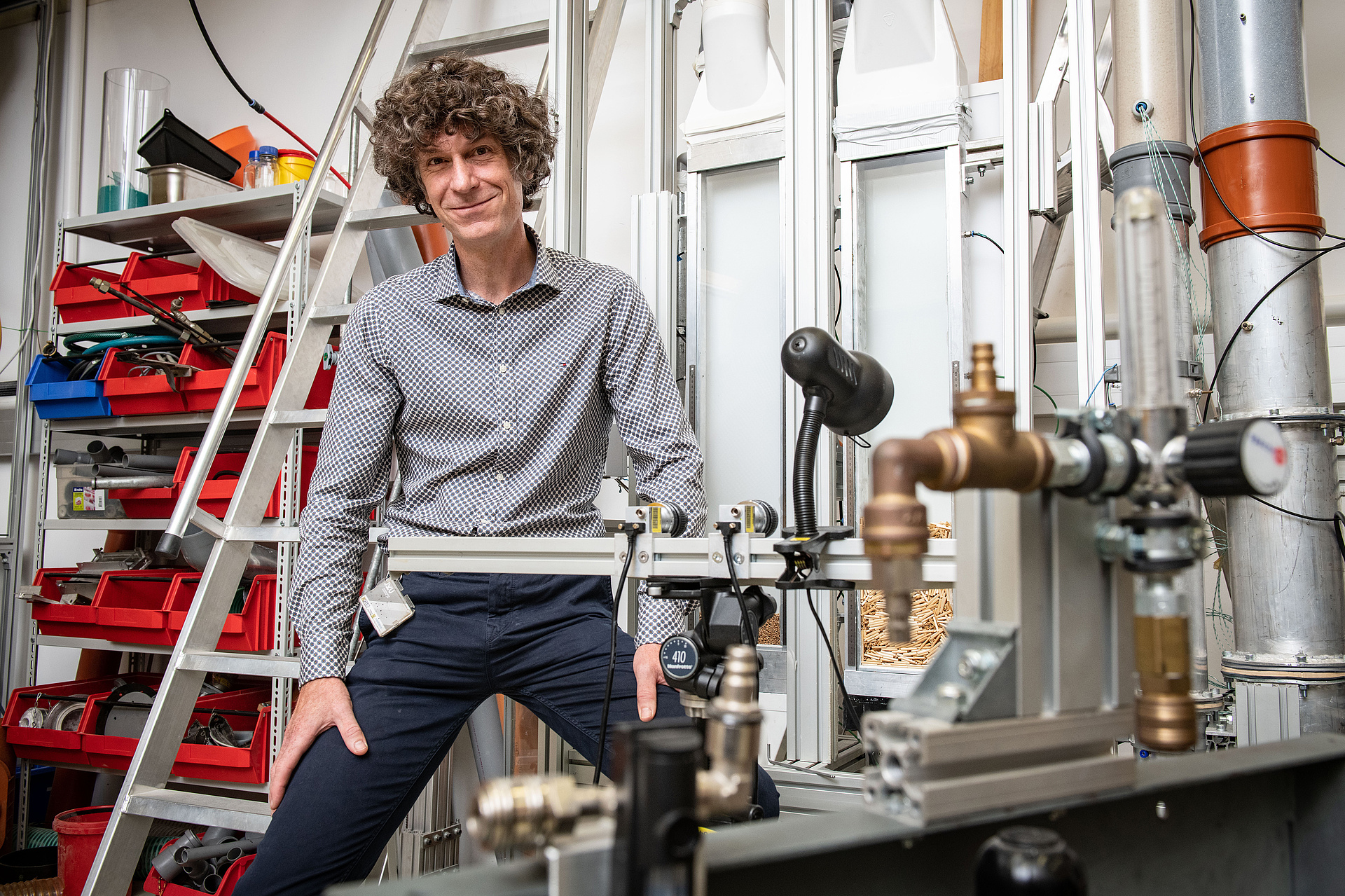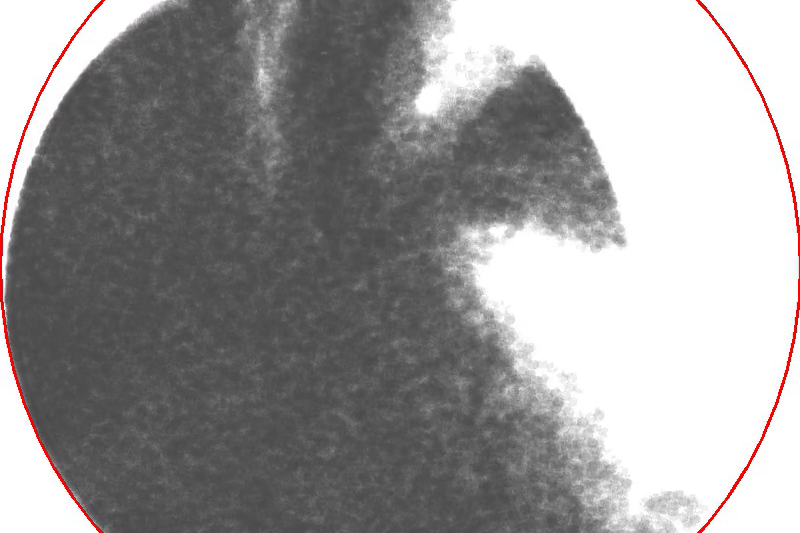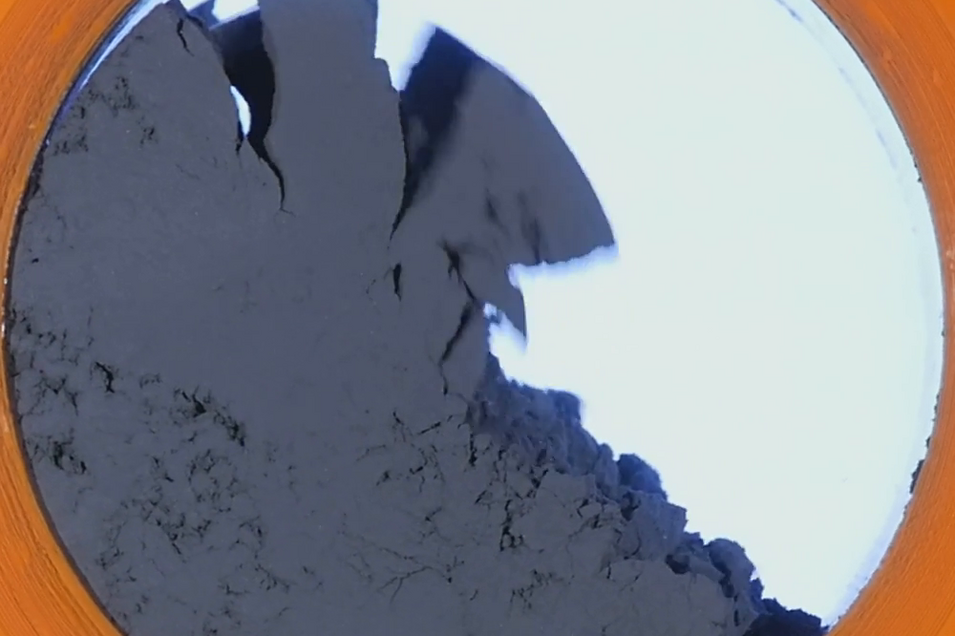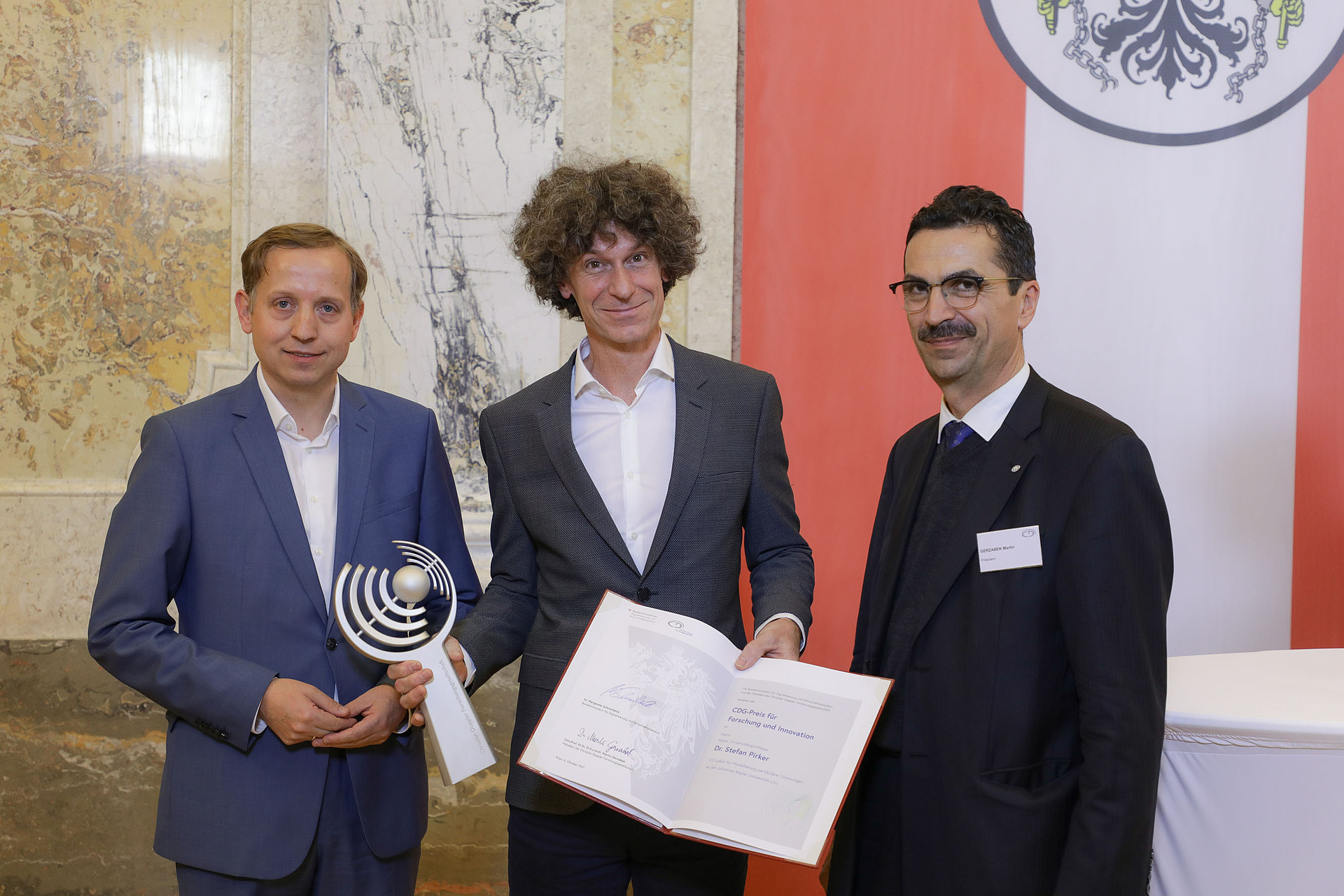Whether ore lumps in blast furnaces, polymer particles in chemical plants or aerosols that spread through the air: Particle behavior is of intrinsic importance and at the same time difficult to predict. A myriad of particles interact with each other as well as with surrounding gases or liquids - to be able to describe this, you firstly have to understand the physics and secondly find an efficient calculation method. And this is what scientists and companies all over the world are researching. This is the only way to make particulate processes more efficient.
A company's questions become a scientific breakthrough
With the CD Laboratory for Modeling Particulate Flows, Stefan Pirker and his company partners were on the right topic at the right time in 2009: new methods from big data and AI were integrated into a physical framework. With these extremely efficient data-assisted methods, complex particle flows can now even be calculated in real time. A paradigm shift that opens up completely new possibilities for digitalization.
International successes
The declared aim of the CD Laboratory is not to solve problems in the short term, but to gain knowledge in the medium and long term, and the findings from Prof. Pirker's CD Laboratory are in demand by many leading international research groups from a wide range of fields. From the very beginning, Prof. Pirker has therefore made his methodological developments freely available to the scientific community with the help of an open-source platform. “No matter on which continent: our programs are used by dozens of universities and research centers. NASA is using them to study the movement of the Mars robot Curiosity, and in Florida, bed load currents in the sea are being calculated - with the feedback from these wide-ranging applications, we can continuously improve our methods - in addition, interesting research collaborations are constantly emerging,” says Head of Laboratory Pirker, explaining the benefits of this open-source model.
And COVID-19?
Even if they are tiny, aerosols are particles and they also move through the air. The models and methods from the CD Laboratory can therefore also be applied to the spread of the coronavirus. The calculation becomes even more exciting when the people who breathe out the aerosols and those who are not supposed to breathe in these aerosols also move. A current research project with the University of Utrecht in the Netherlands is working on modeling the spread of the virus in moving pedestrian flows. The aim is to design visitor guidance at major events in such a way that the probability of infection remains low.
Implementation by the corporate partners
The large number of corporate partners and their diversity show the importance of basic research: fundamental new knowledge can be applied in many ways and forms the basis for entrepreneurial innovation.
Borealis AG
“Life demands progress. The simulation methods developed in Prof. Pirker's CD Laboratory have enabled Borealis to optimize the efficiency and sustainability of existing plants. In addition, laboratory results can now be transferred more quickly and accurately to an industrial scale. In concrete terms, this means lower energy and material consumption, less waste, fewer production stops and thus a groundbreaking success in our mission to constantly invent new things to make our lives even more sustainable”.
Dr. Erik Van Praet, Borealis Vice President Innovation & Technology
PLANSEE SE
“In Prof. Pirker's CD Laboratory for Modeling Particulate Flows, the flow behavior of cohesive refractory metal powders was investigated in order to identify inhomogeneities in the production of sintered parts as early as the powder filling stage as part of the powder metallurgical production chain and to eliminate them by taking suitable measures. This has led to a further improvement in sintering quality, from which a large part of the Plansee product range is already benefiting. The high-quality basic research at the CD Laboratory, its direct link to industrial development and the relatively low administrative effort with a very considerable funding rate show once again that CD Laboratories in general and the laboratory honored today by the award ceremony in particular are an absolutely outstanding success story in international comparison.”
Dr. Arno Plankensteiner, Director Corporate Research & Development (CR), Plansee SE
Primetals Technologies Austria GmbH
“Prof. Pirker's CD Laboratory has greatly accelerated the simulation of metallurgical multiphase flows. High-resolution simulations in real time are now possible. The 7-year collaboration in a CD Laboratory creates trust on both sides and provides sufficient time for application-oriented basic development.”
DI Gerald Fliegel, Head of R&D Management, Primetals Technologies Austria GmbH
RHI Magnesita GmbH
“The transportation and processing of granular materials play a decisive role in the production and application of refractory products. Prof. Pirker's CD Laboratory was able to implement tailor-made modelling approaches and simulation solutions at the highest scientific level, which subsequently supported us in optimizing machines and parts of the manufacturing process.”
DI Gerald Gelbmann, Head of R&D Europe & CIS & Turkey, RHI Magnesita GmbH
voestalpine AG
“A deep understanding of the physical processes is necessary for the further development of our processes. This basic research is carried out very successfully in CD Laboratories, including Stefan Pirker's laboratory. The numerical simulation of flow phenomena provided valuable input for operations. Sophisticated model approaches were used to describe the interaction of water droplets, dust particles and gas so reliably that the results could be used to implement efficiency-enhancing modifications to the blast furnace.
DI Dr. Franz Androsch, Head of Research, Development and Innovation, voestalpine AG
voestalpine Stahl Donawitz GmbH
“Thanks to the cooperation with the CD Laboratory, it was possible to better understand the pneumatic transport of powders and the plant-specific weak points in the conveying process. Based on these findings, a key system component, which is responsible for the uniform distribution of the powder, was modified and optimized. We can highly recommend the CD Laboratory, as we were able to answer application-related questions through our joint work, which formed the basis for operational improvements.”
DI Peter Karner, Head of R&D, voestalpine Stahl Donawitz GmbH




